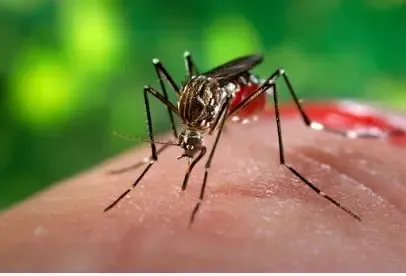Vietnam Sees 21% Reduction in Malaria Cases for 2024

Synopsis
Key Takeaways
- 353 malaria cases reported in Vietnam for 2024.
- 21% decrease from last year.
- One third of cases were imported.
- No deaths or outbreaks reported.
- Goal to achieve zero locally transmitted cases by 2027.
Hanoi, Feb 14 (NationPress) The incidence of malaria in Vietnam has shown a continuous decline in 2024, recording a total of 353 cases, which reflects a significant 21% drop from the previous year, as reported by the Ministry of Health on Friday.
Of these cases, one third were imported, and notably, there have been no reported fatalities or outbreaks, underscoring the nation’s strides in eradicating the disease.
Hoang Dinh Canh, the Director of the National Institute of Malariology, Parasitology and Entomology, emphasized the considerable progress made in malaria elimination, with 48 provinces and cities now officially recognized as malaria-free.
The national strategy for malaria prevention, control, and elimination has outlined a roadmap aiming for the complete eradication of malaria by 2030.
Canh noted that to reach this objective, Vietnam must achieve zero locally transmitted cases by 2027, according to the Xinhua news agency.
The World Health Organization categorizes malaria as a potentially life-threatening disease transmitted to humans through the bites of infected mosquitoes, predominantly prevalent in tropical regions. It is both preventable and treatable.
This infection is caused by a parasite and does not spread from person to person.
Symptoms can range from mild to severe, with initial symptoms including fever, chills, and headaches. Severe cases may present with fatigue, confusion, seizures, and respiratory complications.
Vulnerable groups such as infants, children under five, pregnant women, travelers, and individuals with HIV or AIDS are at a higher risk for severe malaria.
Preventive measures against malaria include avoiding mosquito bites and using medications. Timely treatment can prevent mild cases from deteriorating.
Malaria is primarily transmitted through the bites of infected female Anopheles mosquitoes. Blood transfusions and contaminated needles can also facilitate transmission. Initial symptoms often mimic other febrile illnesses, making early recognition of malaria challenging. If untreated, P. falciparum malaria can escalate to severe illness and can be fatal within 24 hours.
Symptoms typically manifest within 10–15 days after being bitten by an infected mosquito.
For some individuals, especially those with prior malaria infections, symptoms may be relatively mild. Due to the non-specific nature of some malaria symptoms, early testing is crucial.
The latest World Malaria Report states that there were 263 million malaria cases in 2023, compared to 252 million cases in 2022. The estimated malaria-related deaths were 597,000 in 2023, a slight decrease from 600,000 in 2022.









